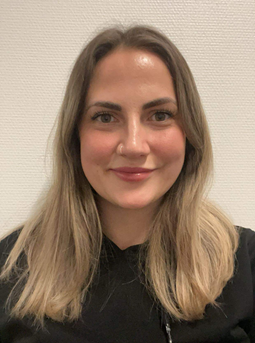Karam Sidaros
Tel.: +45 3862 3330
DRCMR, MR-forskning, Afs. 714
Copenhagen Hvidovre Hospital
Kettegard Alle 36
DK-2650 Hvidovre
As a student you have the opporunity to do a resarch year before finilizing your studies. You become part of a research group and you also write your master's thesis at the same time.
With a research year you get hands-on experience with research before finishing the studies. It is a chance to try out a field you are interested in and see if working in research is something for you and find out if you want a Ph.D. later on.
Optimally, you start planning in good time ahead of a stay: you should contact the department, find a relevant supervisor, and define your project together. Also consider that you are likely to be applying for grants to fund the project and your salary so the sooner you start planning your stay the better.
When you start here at DRCMR you get to work with state-of-the-art equipment and skilled and nice colleagues from all over Europe and overseas. The atmosphere is very friendly.
To be a researcher at DRCMR it takes that you are capable of working independently while also being straightforward and use your supervisor and fellow colleagues for advice when you need it. Some of the work is by nature fairly technical but don’t worry, you will be given all relevant courses to introduce you to the statistics, neuro-research and MATLAB (the software foundation most of the researchers use).
 |
Camilla Djurhuus Hansen, 25, is a Bachelor Student from University College Copenhagen (KP) and is studying Radiography. She is doing a research year for one semester and afterwards going to do her BA at DRCMR.
I fell in love with MRI during my studies and became very fascinated by how detailed images you can get from an MRI scan, as well as the complexity of the technique behind the images. Additionally, I find it extremely exciting to dive into the brain's development and functions and how you can observe that in MRI images.
At DRCMR, I am working with MRI of infants to examine the development of the brain during the first 2 years of life and the possibility to detect cerebral palsy at an earlier age. Additionally, I am also involved in developing procedures for scanning infants without anesthesia which has not yet been established in Denmark.
I was introduced to the Research Year Internship through my studies and my work in the clinic, where I worked as a student helper with MRI scans of patients. My supervisor was looking for a new research year student and I saw it as an opportunity to gain experience in research if I wanted to pursue a PhD later on, so I decided to apply for the position. After my research year, I will write my bachelor thesis at the DRCMR, where my supervisor will help me find a relevant project.
I was nervous at first about whether I had the qualifications to work in research, but everyone is really good at helping each other when you encounter problems. My supervisor is also great at supporting you when there's something you find difficult. Additionally, there are courses you can take, where you can gain basic knowledge in the various methods used in the department, so there are great opportunities to learn a lot of new things. Once a week, there is also a research meeting where colleagues from other projects and external lecturers give presentations, which provides insight into different ways of approaching brain research.
Last but not least, everyone in the department is really friendly, and you feel very welcome when you start in the department.